La Salle University

La Salle Magazine | Fall 2025
Cover Story
Breaking Bread and Building Bonds
Shared meals between students and Christian Brothers in Anselm Hall deepen community bonds at La Salle.
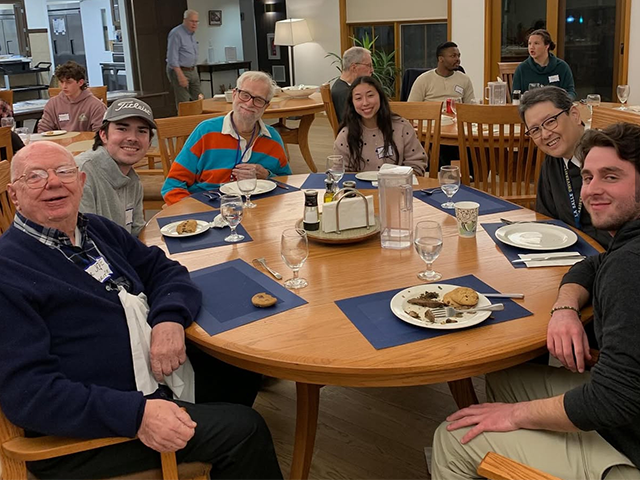
A message from the Office of the President
This fall, La Salle University is alive with energy and excitement—and our alumni are at the heart of everything taking place. Approximately 900 new undergraduate Explorers have joined our community, including the largest entering class since before the pandemic. The excitement they bring is palpable in our classrooms, residence halls, and athletic competitions, and it reflects the same spirit that once guided your own La Salle journey.

Campus News

The achievements of over 1,000 Explorers were celebrated across two ceremonies on Saturday, May 10, 2025.
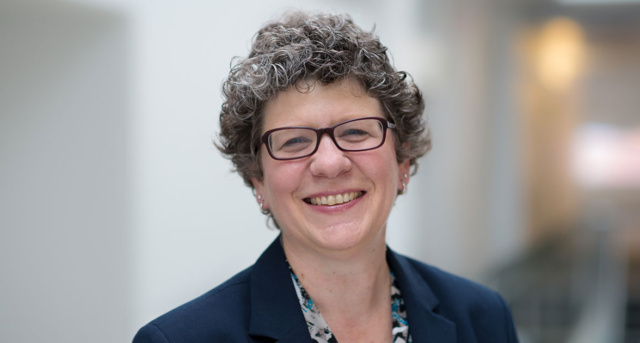
Pauline Scalvino, ‘87, joined La Salle’s Board in 2023 and had served as its vice chair in 2024-25.
Features

La Salle University continues to broaden access to higher education with new degree opportunities for students at every level from new associate to bachelor’s to master’s degrees.
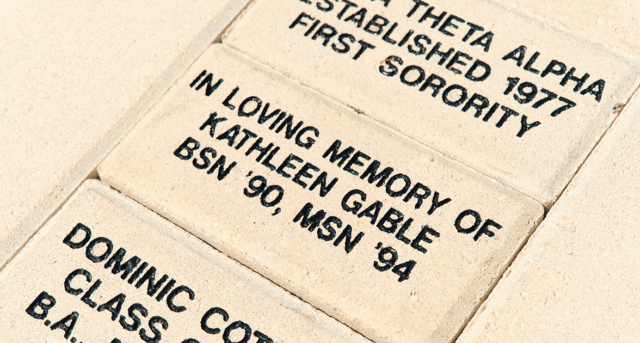
John Gable, ’91, and his family have been supporting nursing students at La Salle since 2021.
Advancement
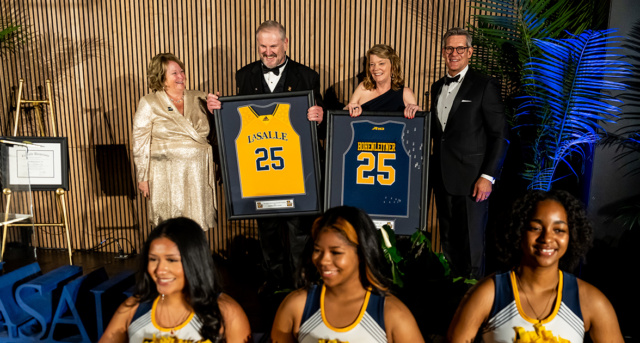
La Salle University hosted its 32nd Annual Charter Dinner to celebrate the institution’s founding in 1863 and honor Sue Hohenleitner, ’92, and The Catholic Philopatrian Scholarship Foundation.
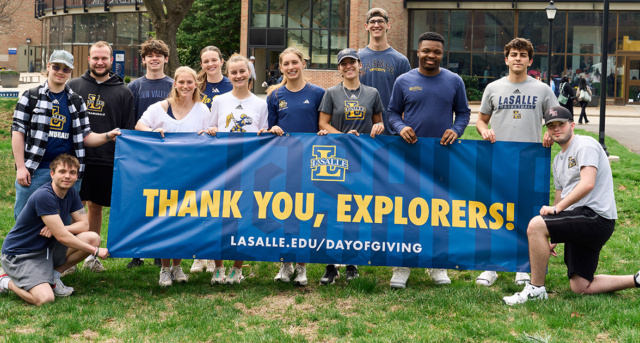
La Salle’s 12th annual Day of Giving raised a record-breaking $1.9 million.
Faculty and Staff Focus
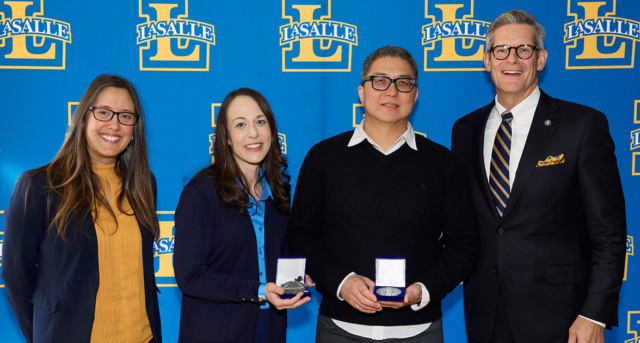
As part of its annual Mission and Heritage Week celebration, La Salle University proudly recognized two outstanding members of its community with 2025 Distinguished Lasallian Educator Awards on April 9, 2025.
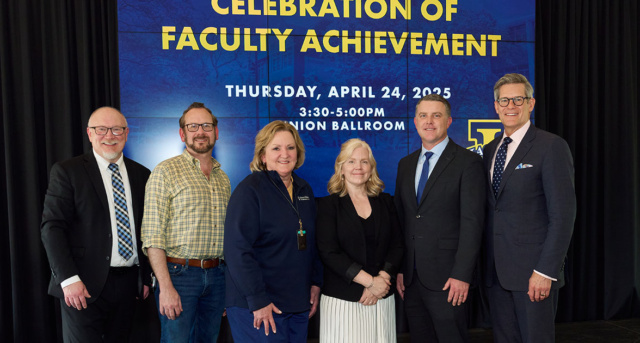
The annual celebration recognizes faculty, acknowledges achievement, and honors retirees.
Schools
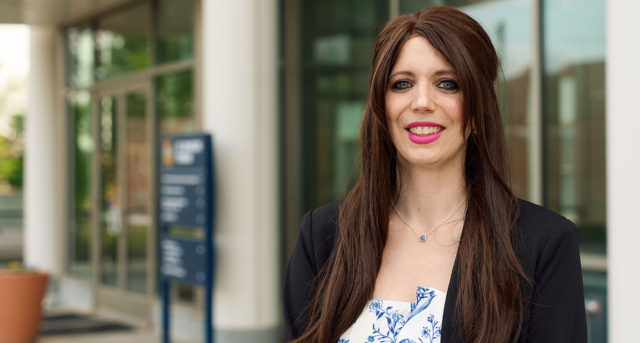
Amber Murray, ‘25, balanced full-time work, chemotherapy, and clinicals—proving that compassion and courage go hand in hand.
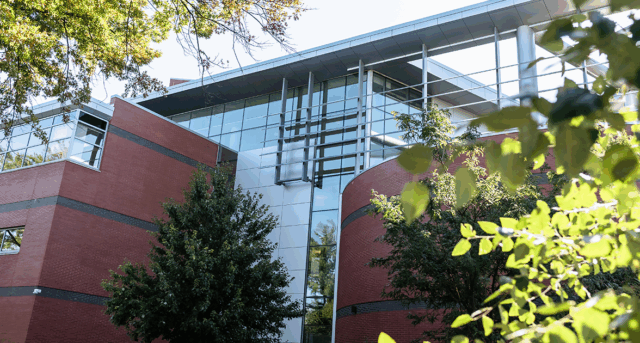
Cary A. Caro, Ph.D., focuses on opportunity, access, and readiness.
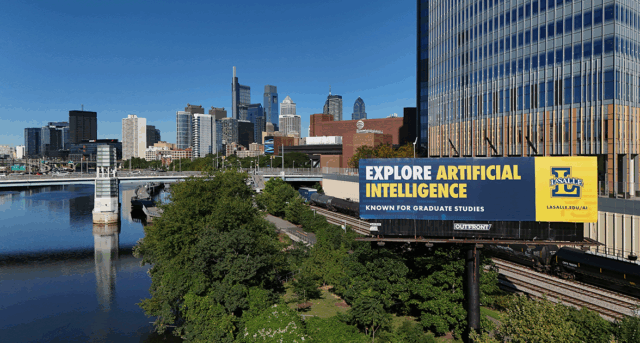
La Salle’s new master’s degree in artificial intelligence coincides with a growing industry in Philadelphia and beyond.
Athletics
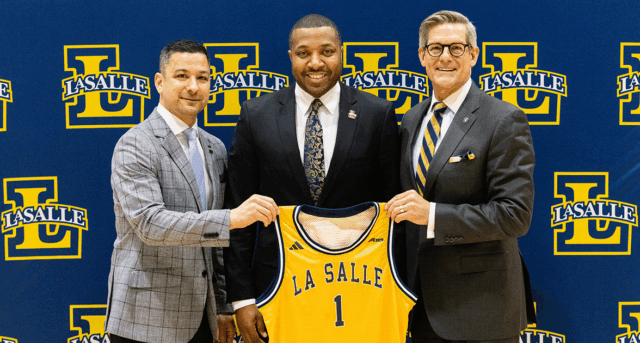
A new era for La Salle men’s basketball got underway with Darris Nichols being announced as La Salle’s 21st head men’s basketball coach in March.
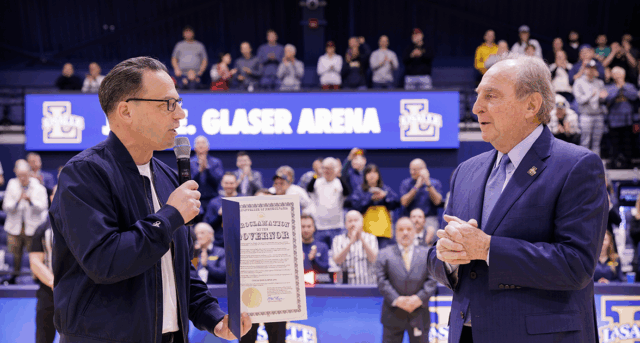
Philadelphia basketball legend Fran Dunphy, ’70, HON ’20, the all-time winningest coach in Big 5 history, retired at the end of the 2024-25 season.